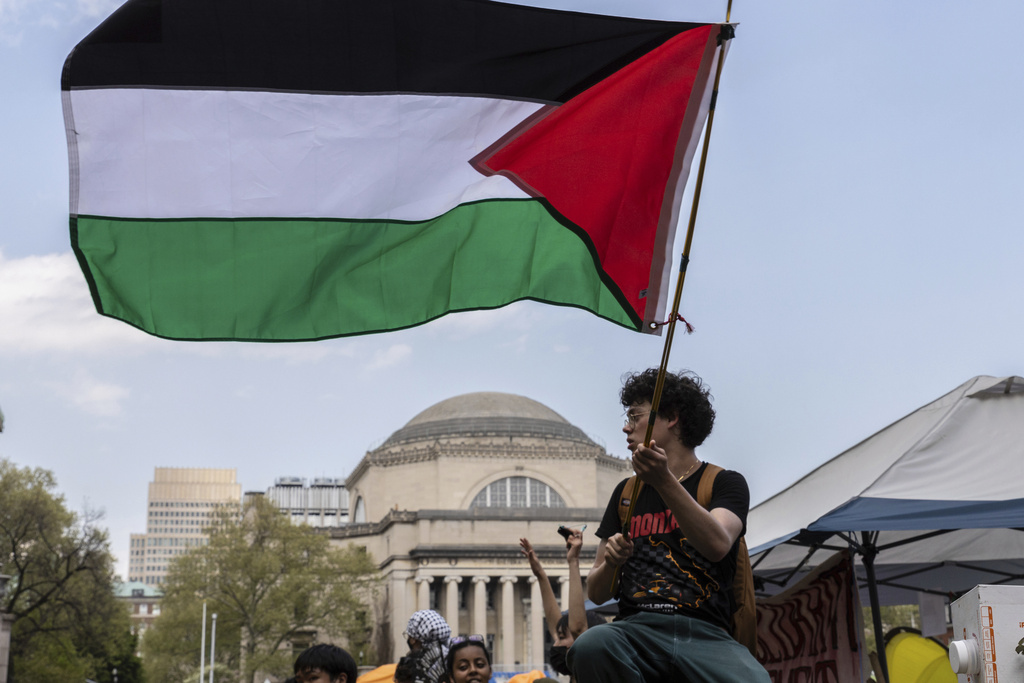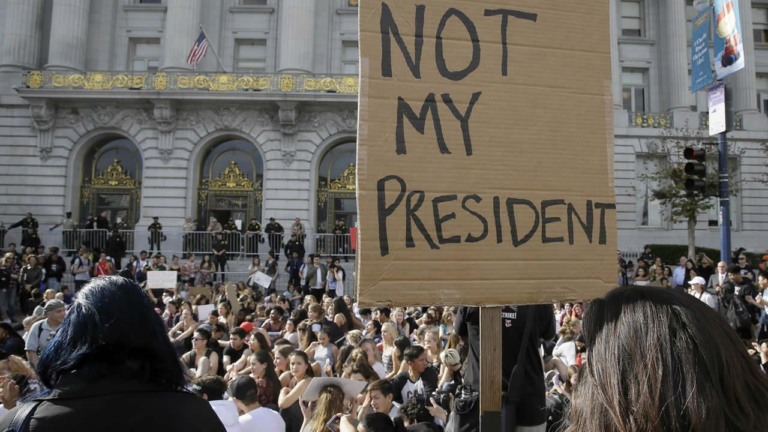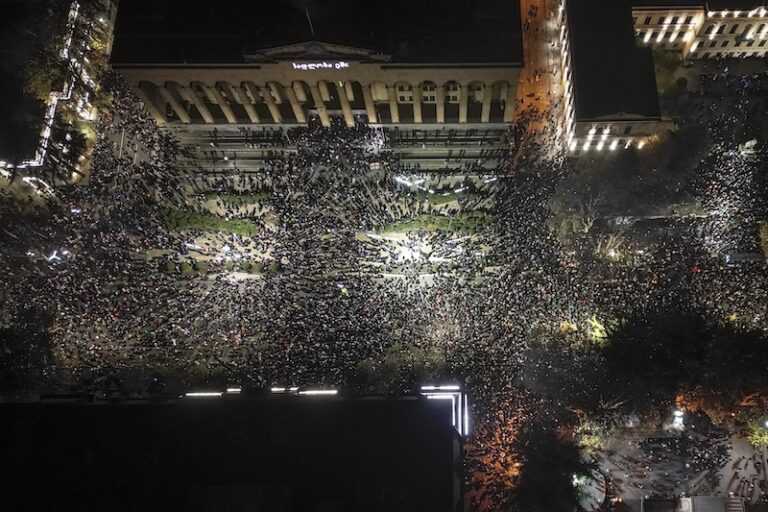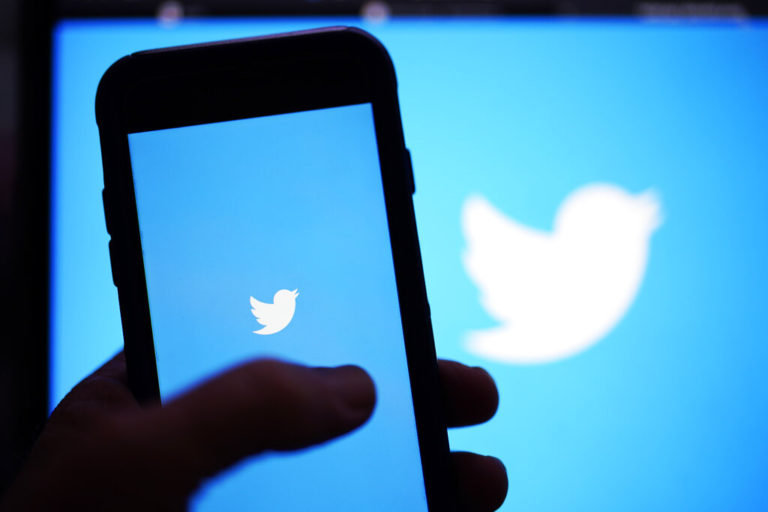
Columbia University and its administration can’t escape headlines about its response to pro-Palestinian protests — from student-erected Gaza Solidarity Encampments in April of last year to the Trump administration’s threats to university funding. As the first university to face major pro-Palestinian student escalations, it may be easy to interpret the Columbia administration’s ruthless crackdown on students as an isolated response. Yet the opposite is true: in the broader landscape of American higher education, student movements are pervasive, and the Columbia administration’s response was not an exception. The contention between free expression and administrative crackdown at Columbia University creates an example for other universities and how they might handle student protests. Its recent responses to Trump’s demands have vast implications on free expression in higher education extending beyond the university’s (locked) iron gates.
On March 7, the White House announced a cancellation of $400 million in grants and contracts for Columbia University “due to the school’s continued inaction in the face of persistent harassment of Jewish students.” The “harassment of Jewish students” refers to pro-Palestinian student organizing, which has included a large number of Jewish students.
The order states that “President Trump has been clear that any college or university that allows illegal protests and repeatedly fails to protect students from antisemitic harassment on campus will be subject to the loss of federal funding.” Columbia was the first university to receive this threat, yet its administration — specifically former-president Minouche Shafik — responded to pro-Palestinian protests with arguably some of the most authoritative and harshest crackdowns in Columbia’s history and throughout the country.
On April 17, 2024, Columbia University students erected the first Gaza Solidarity Encampment, calling for the university to divest from companies connected with Israel and leading the way for more than 130 across the nation. A day and a half after student protestors erected tents on the university’s South Lawn, Shafik called the New York Police Department. With riot gear and using zip ties, they arrested protesters, ultimately detaining over 100 students, many of whom were later suspended. On April 29, Columbia students occupied Hamilton Hall. Less than 24 hours after the occupation began, Shafik called the N.Y.P.D. again, and “officers threw a protester down the stairs, smashed a barricade into protesters, threw wooden chairs, metal tables, and metal trash cans down the stairs, smashed windows, accidentally fired a gun, and arrested 109 protesters in and around the building.”
The Trump administration’s order was issued by the newly-created Federal Task Force to Combat Antisemitism. It has also published a list of ten colleges under investigation, which included the University of California, Los Angeles, and New York University. Similarly, the U.S. Department of Education has also released a list of sixty potential targets of federal funding withdrawal “if [the] institutions do not fulfill their obligations under Title VI of the Civil Rights Act to protect Jewish students” — though U.C.L.A. and N.Y.U. are notably absent. Interestingly, the universities with the most encampment-related arrests rank U.C.L.A. first with around 250, Columbia second with around 225, and N.Y.U. fifth with around 165.
Both of Trump’s antisemitism initiatives seem to have the same goal, yet the arbitrary markers for the different responses prompt further investigations: Does Trump truly care about antisemitism and protecting Jewish students? Or is he scapegoating pro-Palestinian protests as a way to remove outspoken progressive students from university settings? It’s important to acknowledge the significant pro-Palestinian Jewish movement, consisting of organizations like Jewish Voice for Peace and Jews Against Zionism, who reject Zionism. For these students, Trump’s claims of not “protect[ing] Jewish students” are exhibited by extreme aggression from cops towards pro-Palestinian protestors — and not by pro-Palestinian protestors. Trump’s dedication to antisemitism can be further questioned due to his close friendship with Elon Musk, who has spread undeniably antisemitic messages — for example, through a motion he made at a rally, a seemingly apparent Nazi salute, and a social media post he made, now deleted, that read “Hitler didn’t murder millions.”
Last Friday, in an arguably desperate effort to restore the $400 million, Columbia University announced it would concede to a list of the Trump administration’s demands. This means that the university will ban mask-wearing on campus, empower a special force of security guards to arrest students, and appoint the Senior Provost to conduct a review of the Middle Eastern, South Asian, and African Studies department — a move extraordinarily similar to academic receivership, which is traditionally an internal process taken as a last resort to end longstanding dysfunction within a department.
In isolation, it’s a horrific realization. Columbia University, one of the most prestigious academic institutions in the world, known for its history of student dissent, gave in to unjust demands without a fight— legal or otherwise. Further, as a university modeling the aftereffects of dissent and its consequences, Columbia’s actions are dangerous in a different way in that they set a precedent for administrative cowardice in the face of the Trump administration’s punitive threats. By succumbing to the Trump presidency’s demands, the Columbia University administration has blatantly and unapologetically displayed their willingness to concede to an authoritative dictatorship. As students, faculty, staff, and citizens, we can only hope that our universities — if and when they fall into the shadow of Trump’s iron fist — will reject Columbia’s deplorable example, and instead act defiantly to protect students and their academic freedom.
The Zeitgeist aims to publish ideas worth discussing. The views presented are solely those of the writer and do not necessarily reflect the views of the editorial board.



